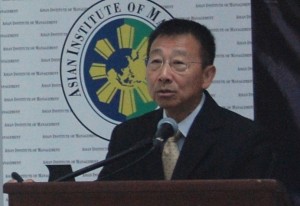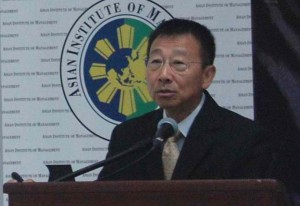By MARC CAYABYAB

AS the country’s lead agency against graft and corruption, the Office of the Ombudsman lags behind those of neighboring countries such as Indonesia and Singapore.
That’s because it’s slow, inefficient and lacks “hard” investigative powers, anticorruption experts told a forum held at the Asian Institute of Management in Makati one Friday, one day after Merceditas Gutierrez bowed out as Ombudsman, a position she had held since December 2005.
Gutierrez, who was impeached by the House of Representatives for sitting on a string of anomalies that rocked the Aroyo government, including the P728 million fertilizer fund scam, resigned on April 29, or 10 days before she was to go on trial before the Senate.
“I can tell you as a fact that Office of the Ombudsman is the only ACA (anticorruption agency) mandated to investigate corruption but with no investigative power at all,” said Tony Kwok Wan-Wai, former deputy commissioner of Hong Kong’s Independent Commission on Anti-Corruption (ICAC).
Kwok added that the Ombudsman does not have the mandate to arrest corrupt officials, unlike the ICAC in Singapore. A corrupt official in the Philippines can even walk openly on the street with dirty money and not get arrested by the Ombudsman, he added.
Emil Bolongaita, a public management specialist of the Asian Development Bank-South Asia Department, said the Philippine Ombudsman only posted a 0.7 percent conviction rate from 2001 to 2006, citing a study of Center for People Empowerment and Governance.
Indonesia’s ACA Corruption Eradication Committee (KPK), on the other hand, recorded a 100 percent conviction rate, while the Singaporean ICIC exhibited 85 percent, he said.
The absence of “hard investigative powers” may have resulted in weak evidence, delayed trials and poor conviction rate, he said.
Investigative powers include examining bank accounts and tax records, freezing assets, conducting wiretaps and issuing arrests.
Kwok, who is an expert on the corruption situation of Indonesia, added that the KPK convicted 38 corrupt officials and persecuted 55 in 2010, from just five and seven in 2005. Officials found guilty of corruption included parliament members, Cabinet ministers and private businessmen.
After former president Joseph Estrada was granted pardon, no high-ranking official in the Philippines has been convicted, said Bolongaita.
On Monday, the Sandiganbayan cleared former Armed Forces comptroller Carlos Garcia of plunder, saying the prosecution failed to present proof that he accumulated his wealth during his years in the military. It approved the plea bargain deal the retired major general struck with the Office of the Ombudsman, then headed by Gutierrez.
Kwok also noted a discrepancy between the number of investigators and staff in the Office of the Ombudsman.
ICAC has one investigator for every 200 staff members, but the Philippine Ombudsman has one investigator for every 9,000 staff, he said.
Bolongaita added that Indonesia’s KPK recruits staff members from competitive human resources firms to “ensure merit selection.” He said that 28,000 apply for staff positions in the KPK while 2,000 apply for top seven management posts.
While KPK recruits “highly experienced investigators,” the Ombudsman in the Philippines recruits staff with little or no experience and training at all, Bolongaita said.
More than resolving the lack of resources and unprofessional staff, Kwok recommended a “three-pronged approach against corruption.”
“We need to define corruption through education, fight corruption through corruption prevention, and fight corruption through deterrent enforcement,” he said.
Bolongaita said the aim should be to make corruption a “high-risk and low-reward activity by increasing the probability that corruption is prevented, detected, investigated and prosecuted.”
(The author is a University of the Philippines student intern of Vera Files.)
